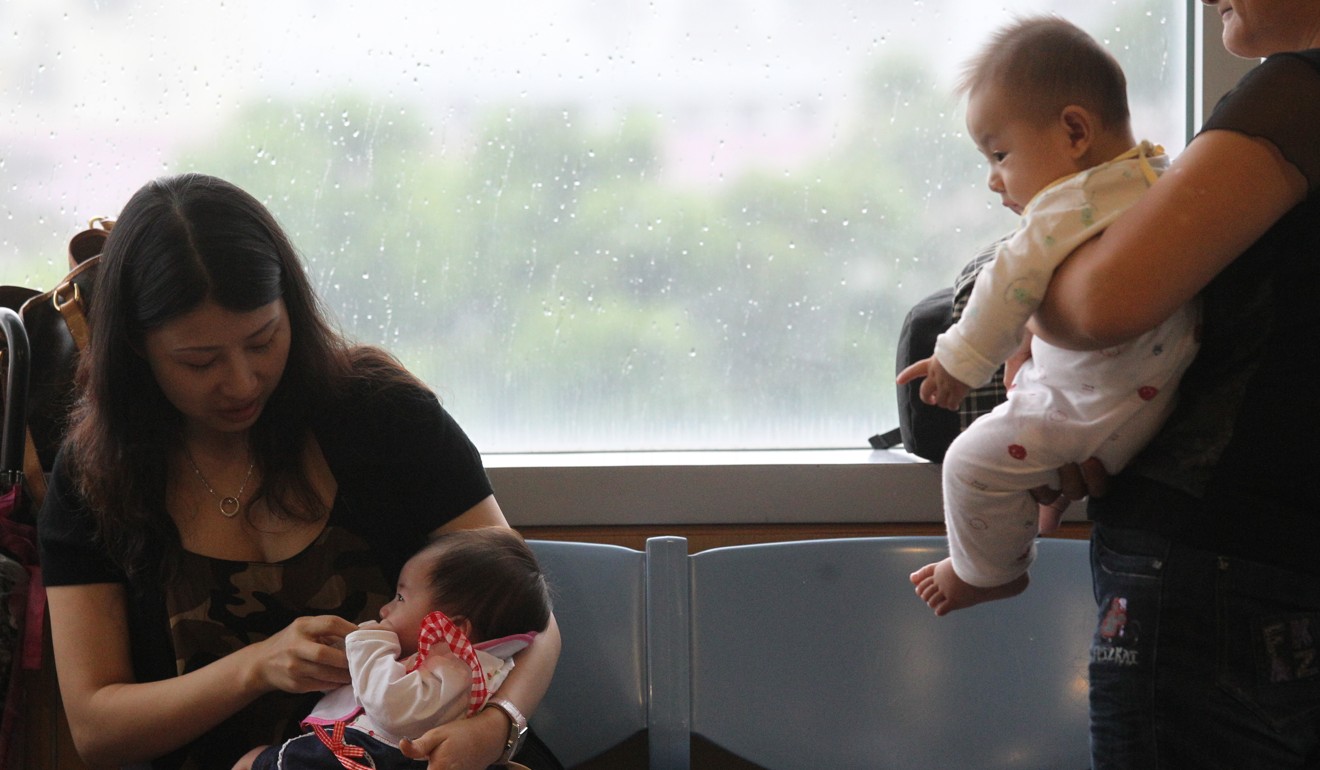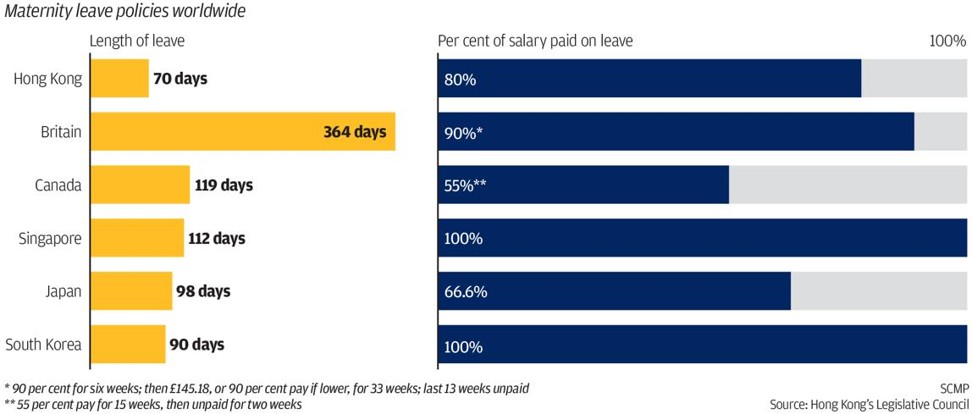
Stop lagging behind, Hong Kong, it’s high time to extend maternity leave
Giving mothers the right support to re-enter the workforce is a win-win for all, including employers and society at large, Luisa Tam argues
It is an absolute pleasure to see politicians who genuinely serve the people instead of themselves, and who are willing to go against all odds to fight for what is just and right.
In that regard, New Zealand’s Prime Minister Jacinda Ardern was truly a breath of fresh air when she brought her three-month-old daughter, Neve, into the United Nations assembly hall recently to attend a plenary meeting – the Nelson Mandela Peace Summit – which she also addressed.
Ardern had earlier shot to international fame for giving birth while in office – becoming the second world leader in history to do so. The first was the late Benazir Bhutto, Pakistan’s former prime minister.
By bringing her baby to the UN session, Ardern was making a point about the difficulties and challenges working mothers face in today’s increasingly unforgiving work environment. They are stigmatised and sidelined, and sadly they are assumed to be a burden in the workplace rather than an asset.
Can Carrie Lam bridge Hong Kong's maternity leave gap?
Working mothers, especially those with infants, often have to squeeze both childcare and work into a busy day. In Ardern’s case, her version of a busy day would certainly overwhelm any working mother – or father, for that matter.
The prime minister is the embodiment of today’s modern woman and is one of the bastions of feminism. From pregnancy to motherhood to the empowerment of women alongside the rising sentiment of the global #MeToo movement, she is not only demonstrating the significant role of women in society but also how they should be treated and respected, no matter what roles they play.
The way Ardern juggles motherhood and the premiership with such (seemingly) great ease may have awed women and men alike across the globe. But many working mothers around the world are struggling in similar ways; no matter who they are, they are all trying to pack in as much as possible on any given day to raise a family and make a living.

Being a mother is hard enough, and being a working mother is even more difficult. Society should lend a helping hand to women raising children in whatever way possible.
In New Zealand, the current paid parental leave entitlement is 22 weeks and will go up further to 26 weeks from July 2020. The country used to offer one of the lowest such leave allowances among developed nations.
However, even as New Zealand becomes increasingly progressive in supporting working mothers, Hong Kong is still bitterly arguing over whether we should increase paid maternity leave from an abysmal 10 weeks to 14.
First sitting Hong Kong legislator to give birth wants to vote during maternity leave
The most vocal opposition has come from the small- to medium-sized companies that make up 98 per cent of the city’s businesses. Their main concern is rising costs on top of the already unbearable high rents and a worsening labour shortage.
But Hong Kong is increasingly under pressure, with an ageing population and a declining birth rate – at 1.13 per female resident, possibly the lowest in the world.
For the population to remain steady so as to be productive, which directly impacts Hong Kong’s ability to maintain its international city status, having a fertility rate of 2.1 is the prerequisite for managing demographic changes due to ageing.
In short, we need more babies. But sadly, society does not want to pay for them by supporting working mothers. Like the reverse of the popular saying, “You can’t have your cake and eat it”, society wants it both ways.
Working mothers should be fairly and squarely compensated, and they should be allowed to have sufficient time to care for their infants after childbirth. They should also be welcomed back into working life and supported by their colleagues and superiors alike; this is how every employee ought to be treated, and working mothers are no exception.
Government considers subsidies to offset costs of extra maternity leave
Giving mothers the right support to re-enter the workforce is a win-win for all, and this includes families, companies, society at large and the government.
There have been calls for the government to subsidise employers for the cost of providing the extra maternity leave. The authorities, of course, should take the lead by implementing a more generous maternity leave allowance in the civil service. They should also subsidise the private sector to benefit employees across the board. Once the ball has started rolling, private businesses should follow suit and shoulder the costs.
In today’s competitive landscape, brand awareness is crucial to the success of any business. Not only will a caring company attract and retain happy employees and boost staff morale, it will also attract investment and boost brand value.
For now, we are still lagging far behind countries like Britain and some Nordic nations – which offer about a year or more of paid maternity leave – in terms of parental leave allowances.
It is time to start moving in the right direction. Let us start with 14 weeks’ maternity leave, which is certainly not too much to ask for these days. So cry, baby, cry – let them hear you and your call for all mothers to be paid and treated fairly here and everywhere else.
Luisa Tam is a senior editor at the Post


